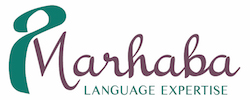An effective teacher activates students’ prior knowledge, and concerns himself with students’ backgrounds, preparation, and goals. He believes in his students’ abilities to master the course material, and he challenges his students to have confidence in themselves. He demands no more or less effort than he himself is willing to invest. An effective teacher models collegiality and scholastic endeavor. She sets her students up for success, preparing and coaching them to rely on their new skills and to show their best efforts. She regards each student as an individual, with individual strengths and weaknesses. An effective teacher presents new information clearly, and lectures only when necessary. He creates a classroom atmosphere of collaboration, mutual respect, and the excitement that comes from completing tasks with new knowledge.
Studying any language alerts students to structures that they may take for granted and which affect how they communicate, and often how they see the world. An excellent language class recognizes students’ backgrounds, making connections between prior knowledge and new linguistic structures. Arabic may challenge a beginner to learn unfamiliar vocabulary, but a good teacher will help students by helping them develop their skills for studying, pronunciation, and using new phrases. This process lays a foundation for students to learn how to learn and how to interact with the unfamiliar. There is no language without community. Developing strategies to overcome barriers to communication will prove invaluable to students no matter where their paths lead. A good language class strengthens life skills such as competence in situations of vulnerability, cooperation in situations of confusion, versatility in situations of diversity, and the ability to communicate across boundaries. I use a communicative approach to language teaching, aiming at proficiency. This means that I coach students to express themselves and use their language skills for the purpose of communication first and foremost.
Studying literature and culture opens students’ eyes to new perspectives on our world. I attended public American schools that failed to offer a world history course or a language course other than Spanish. This experience affects my teaching, increasing my eagerness to provide the knowledge and skills for students to access new information and ideas. I enjoy directing individual students toward sources and topics according to their individual interests, spending time outside of class for mentoring and advising. I encourage students to think critically, to examine arguments, and to develop and express their own ideas. In addition to self-expression, however, I keep the classroom atmosphere interactive and collaborative, allowing every student a chance to participate. My classes usually incorporate group work in order to give each student the maximum amount of time practicing new skills (whether new vocabulary in a language class, or new theoretical concepts in a literature class). I think of learning as inherently collaborative, challenging, and rewarding, and I envision my classroom as a laboratory in which every individual may freely experiment with language and ideas in a supportive environment. Effective teaching, as well as language learning more specifically, is characterized by creativity. I encourage students to form their own relationship with the subject matter, exploring their own interests as much as possible in order to increase their motivation to continue their education wherever it may lead.
